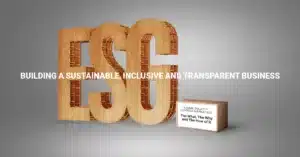Prologue: As part of our series focusing on the Union Budget 2019, we’ll be highlighting the opinions of industry experts and see what they think and expect from this year’s Budget. In this article, Pankaj Ghosal, an expert on indirect tax matters, talks about his Union Budget 2019 expectations. Read on!
Union Budget 2019: Expectations In Banking Sector and Automotive Industry
I expect the automotive industry to be affected by this budget, considering the ongoing slump and a decrease in the number of 4-wheelers and 2-wheelers being sold in the last few months. Part of the reason for the slump is the inability to obtain credit and NBFCs being hit at large. The government is expected to bring about reforms in the banking sector which will indirectly, benefit the automotive sector.
The banking sector would be getting major attention in the upcoming budget, highlighted by the financial frauds that have happened recently. NBFCs would also be receiving much needed support from the government, with the former having been in a crisis following the collapse of IL&FS.
The crisis even hit Reliance Housing Finance, which exchanged its debentures for 4 months. The NBFC crisis has hit the financial sector as a whole and as a result, adversely affected the automotive sector (indicated by low sales) and the infrastructure sector.
The EV industry has received a push from the government with the recent GST cuts and is expected to receive more benefits in Budget 2019. This push to promote EVs in India is in line with the government, which is looking for a considerable number of EVs in private and shared mobility, with plans to sell only electric cars by 2030. Foreign companies like Kia and MG (Morris Garages) are also being given incentives to operate in India.
Union Budget 2019: Expected Changes In Manufacturing Sector
Many significant changes have already been introduced in the past 1 – 1.5 years and they have been the recipients of many GST benefits at the start of 2019, as a pre-cursor to the General Elections. The benefits already provided make it highly unlikely for the manufacturing sector to get any major benefits.
Like GST, I think there would not be much change in Section 80C and the currently defined income tax slabs. A huge benefit was also provided in the interim budget through Section 87A, which provides individuals earning a net taxable income up to INR 5 lakh a full tax rebate.
The benefits offered to the manufacturing sector are being exercised for the setup of plants and machinery only in certain SEZs (Special Economic Zones) and industrial hubs. Since policies concerning the setup of plants and machinery are different for different states, as decided by the state governments, the budget is highly unlikely to make an impact on the manufacturing sector. However, the central government should collaborate with the state governments to ensure holistic growth of the manufacturing sector in as many states as possible.
Budget 2019: Should the Individual Taxpayer be worried?
I believe there are certain changes which will be introduced in Budget 2019 that will impact the individual taxpayer. The government is expected to increase the limit under Section 80C for the Public Provident Fund (PPF) and insurance, in general. This will come as a welcome move as these loans will be used in infrastructure and other industries. To be realistic, the limit on Section 80C is expected to increase by INR 50,000, from INR 1,50,000 to INR 2,00,000.
This budget might also see the government forming a special section for the repayment of principal of loans and separating it from Section 80C. Primarily, the individual taxpayer expects two things – a slab hit flat to 5 lakh and Section 80C to be increased from INR 1.5 lakh to INR 2 lakh, as I mentioned earlier.
Union Budget 2019: Electric Vehicles, The Key To The Future Of Mobility?
For India to move ahead, it needs to manage its trade deficit, with oil being a huge piece of the puzzle. India is primarily an importing country and our India’s increasing usage of oil for industrial and domestic applications has led to huge expenditures on importing oil. We can help revive the economy and the environment by shifting from ICE vehicles to electric vehicles and in the process, reducing our dependency on oil. Therefore, there is an urgent need for the government to provide incentives to existing players in the EV ecosystem and also encourage new entrants.










